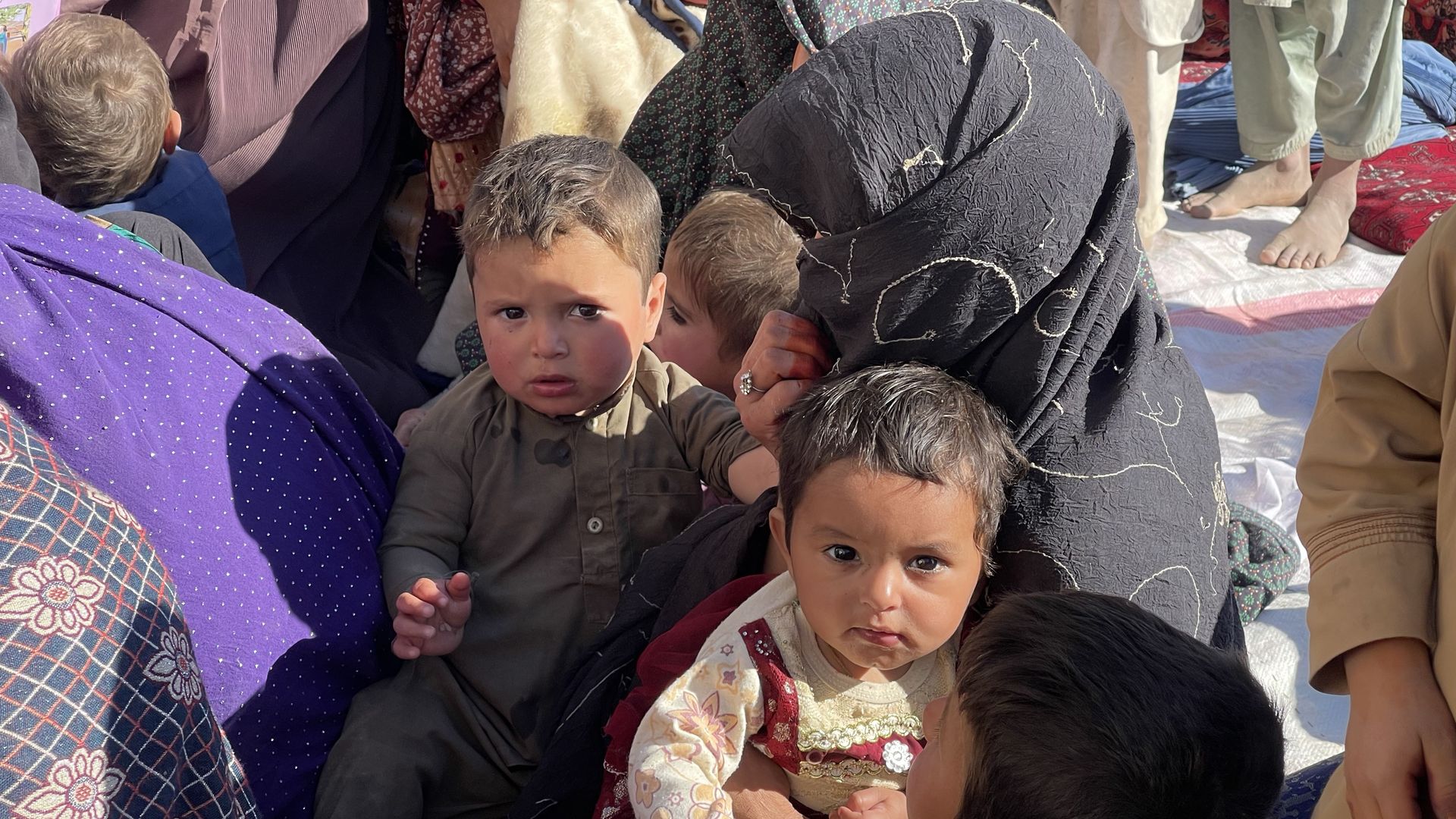Biden loosens aid rules for Afghanistan but keeps assets frozen
Add Axios as your preferred source to
see more of our stories on Google.

People receive health seminars held by Health Ministry of Taliban. Photo: Murteza Khaliqi/Anadolu Agency via Getty Images
The Biden administration is loosening restrictions to make it easier for humanitarian groups to provide aid to a devastated Afghanistan, senior administration officials told reporters Tuesday night.
Why it matters: The steps do not address the urgent calls from the Taliban, Afghan protesters, international aid groups and U.S. lawmakers for the U.S. to lift its freeze on Afghan foreign reserves. With most aid stopped and overseas assets frozen, Afghanistan's cash crunch has rendered the economy hardly functional.
Instead, the administration announced three new general licenses to allow the U.S. government, NGOs and international aid organizations to provide more support without violating U.S. sanctions against the Taliban.
- The licenses allow investment in education, making it possible for aid groups to pay Afghan teachers' salaries, for example.
- The Biden administration is also providing an additional 1 million COVID-19 vaccines to Afghanistan, bringing the total doses provided to 4.3 million.
The big picture: Afghanistan's economy faces a "severe contraction" of around 30% following the Taliban takeover, one senior official told reporters, citing drought, COVID-19 and the Taliban's handling of the economy.
- Another major reason is the sudden severing of most foreign aid to Afghanistan, due in part to the fact that the Taliban government lacks international recognition.
- Around 95% of the population does not have enough food and 1 million children could die this year from malnutrition, according to U.N. estimates. Winter weather is only expected to worsen the situation.
- Afghanistan is facing near-universal poverty, the closure of most health clinics and potential mass starvation.
Driving the news: This week, protestors in Kabul marched toward the U.S. Embassy, demanding "let us eat." Meanwhile, more than 40 House Democrats wrote a letter calling on Treasury Secretary Janet Yellen to end the freeze on Afghan foreign reserves.
- Between the lines: Lifting the freeze would be politically tricky, as it could be construed as providing billions of dollars to the Taliban. The administration has also argued that there are legal hurdles to doing so.
- The funds remain the subject of ongoing litigation relating to the families of 9/11 victims who are seeking compensation from the Taliban.
What they're saying: When asked whether the new actions were sufficient to lessen the crisis, one senior official said the goal is to mitigate, not prevent, economic contraction in Afghanistan.
- The official emphasized the Taliban will have to make the right economic decisions to prevent crisis and that the U.S. remains in communication with the militant group to ensure humanitarian assistance goes where it is intended.
- Another official on the briefing call also called on other nations to join the U.S. to help prevent disaster in Afghanistan.
- Since mid-August when the Taliban took over Kabul, the U.S. government has announced $200 million worth of assistance for Afghanistan and worked with other countries to redirect additional funding toward efforts on the ground from UNICEF and the World Food Program, the officials said.
What to watch: On Wednesday, the U.N. Security Council adopted a resolution to create a humanitarian carve-out for Afghanistan sanctions, which will also help humanitarian groups provide more assistance.
